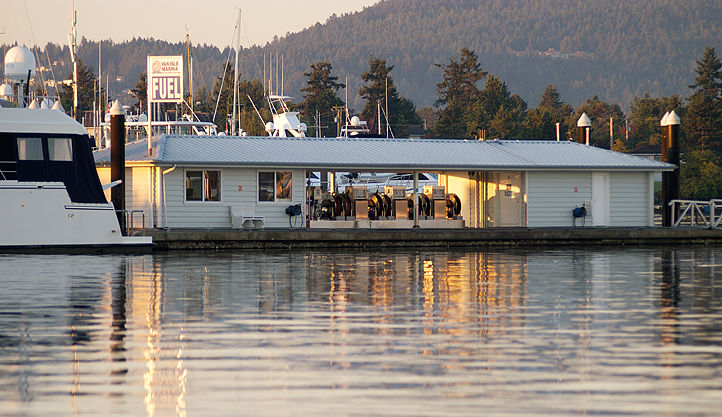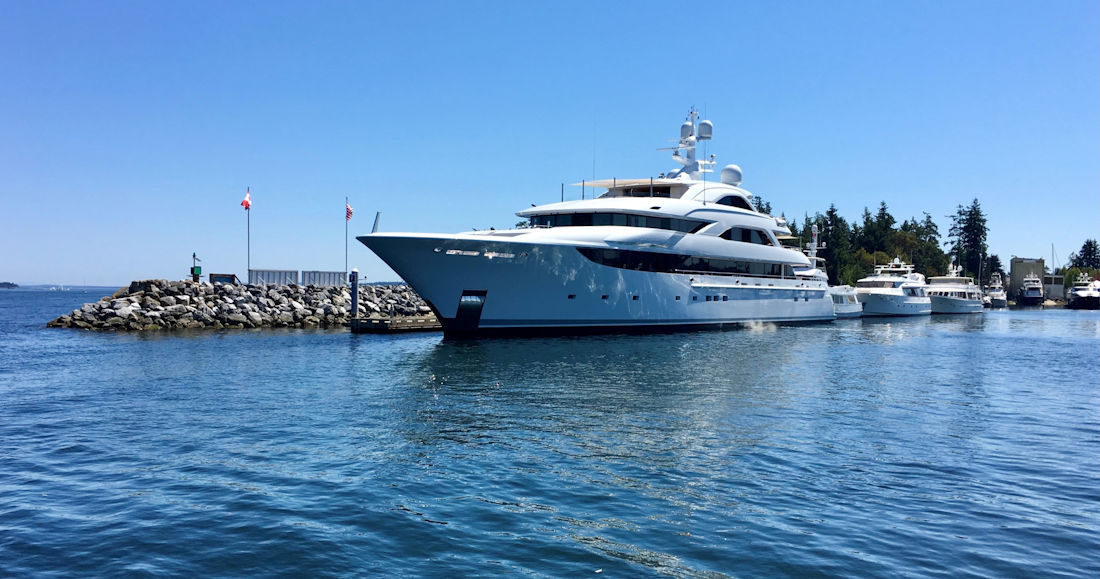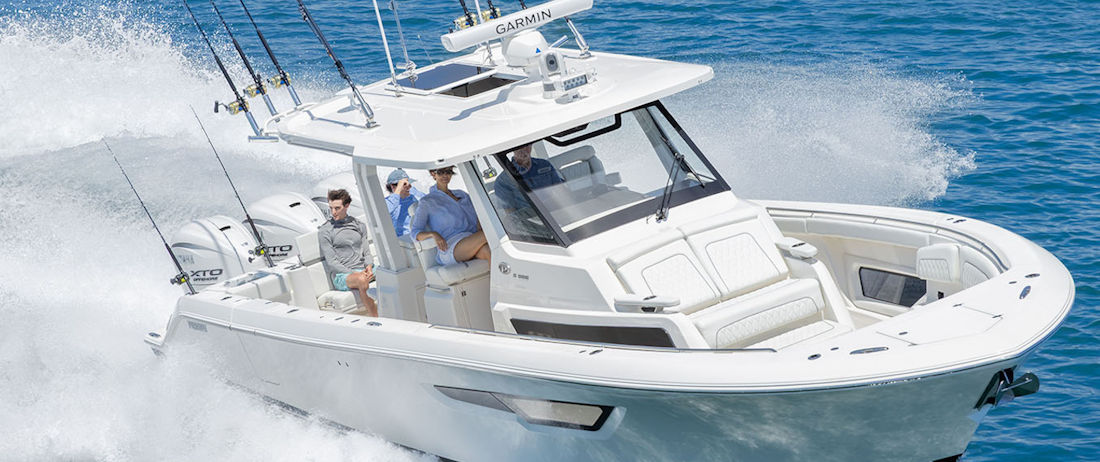10 Must Know Costs Before Buying a Boat – Maintenance & Operation

Understanding the True Cost of Boat Ownership From Maintenance to Operation
While it’s tempting to look at the sticker price of a boat for sale and get caught up in the dream, we always caution our customers on the additional costs of boat ownership they need to consider. After all, it’s easy to underestimate what it takes to own a boat, which is why our yacht sales team always take new boat owners through all the costs that may arise.
Our sales team wants our customers to love their boats wholeheartedly and feel excited every time they are out on the water – not struggle to make payments and end up experiencing buyer’s remorse.
Keeping the following costs in mind while shopping for your first boat is strongly recommended in order to stay comfortably within your budget.
1. Fuel and Other Operating Costs

Operating costs vary a lot based on the type of boat. For example, the cost of fuel will naturally vary according to the age, size, and style of your boat (sport vs day cruiser; motor yacht vs sailboat, etc). You can burn more fuel at a higher cruising speed. At the pump, the cost will fluctuate depending what kind of gas your boat requires and where in the world you are. As of late-2025 in Victoria, marine gasoline is priced just under $2 per litre while marine diesel hovers around $2 per litre.
There are also expenses associated with oil, batteries, pumps, lights, and specialized equipment and other rations that ultimately will need replenishing. These will all need to be budgeted for appropriately.
Fuel and operating costs are never an exact science, but your yacht sales team and experienced boater family and friends will happily share some insights with you and can assist you in knowing what to budget for these items.
2. Boat Insurance
The cost to insure your boat against damages will depend on things like the size and age of the boat, where it will be docked, the types of activities it will be used for, and other factors. On top of insurance for your actual vessel, you might also be required to have liability insurance and damage coverage.
Insurance costs can certainly add up, making them one of the highest costs of boat ownership, but like all insurances, it’s a necessary evil if you want to moor your boat anywhere. At Van Isle Marina, we can refer you to some excellent insurance brokers who can assist you.
As a general guideline, expect insurance to cost about 1.5% of the boat’s total value. But again, there are several factors that could swing that figure in either direction.
3. Moorage and Storage

Mooring a boat at a marina or storing your boat on land in a storage facility will come with various costs that differ a lot among marinas and facilities. For example, a secure storage facility might cost considerably less overall than mooring your boat in the water at a municipal marina, private marina, or exclusive yacht club. These costs can range from a hundred dollars to a thousand dollars (or more) per month.
Fees are often calculated per foot of your vessel, and paid for monthly or annually. Discuss with your yacht sales team where you will be storing your new boat, specifically mentioning whether it will be stored in water or on land, as this cost will definitely affect how much boat you can afford. See Van Isle Marina’s moorage rates to get an idea of what moorage and storage could cost you.
In addition to the moorage fee, some marinas may also charge for things like live aboard fees, optional car parking, and utility fees for electrical power and fresh water supplies.
4. Trailer
With most smaller boat purchases comes an inevitable trailer purchase. The trailer is a key component of boat ownership. At some point you’ll need one to haul your boat in and out of the water.
Sometimes the trailer you’ll use to haul your boat is an entirely separate purchase, while sometimes it’s included in the price of the boat you’re buying. Whatever the case may be, you’ll need to do more than just consider the outright purchase of the trailer – there are the additional maintenance costs of the trailer, with tires and brakes being the two biggest ticket items, on top of insurance and any potential storage costs if you cannot keep the trailer on your property.
5. Boat Maintenance and Repairs

It’s common to hear from boat owners that boat maintenance costs are approximately 5-10% of the value of the boat per year. However, it’s tough to go off of such a percentage. There are so many factors that affect a boat’s maintenance cost and schedule, with the obvious ones being how often it is used, and in what weather conditions.
Things that need maintaining are waxing and painting of the hull and engine tune-ups, while things that might need frequent repair are plumbing and electrical issues – again, it all depends on the age of your vessel, your make and model, and how much sweat equity you’re able to contribute.
>> Learn more about our boat maintenance services at Van Isle Marina.
>> Read our Boat Maintenance Checklist.
6. Equipment & Accessories
You’ll need to outfit your new boat with all the essential elements that are required for a day out on the water. Some items are required, like lifejackets, fire extinguisher, distress signals, flashlight and first aid supplies, while others will contribute to a more comfortable boating experience. Some of these are relatively minor one-time expenses, but they all contribute to your overall cost of owning a boat. Read the full boating equipment checklist.
If you’re departing for at least a couple nights or more, there are number of things to make sure you’ve got stocked onboard.
- Cleaning supplies and towels
- Fishing tackle and other gear
- Water sports gear
- Kitchen essentials like flatware, plates and bowls, cutting board, bottle opener, peeler, cookware, measuring cups, containers and much more
7. Extras & Add-ons
Just like brand new cars, boats can come standard (factory built) or come with several optional add-ons to enhance the experience of the ride. Your desire and ability to opt for these extras will depend on your budget and how much you are willing to invest.
Be prepared for the ticket price of your desired model to go up when you factor in your desired extras. This could include things like upgraded upholstery packages, sportfishing packages, GPS systems, anchoring system, laundry rooms, engine power, and the list goes on. You name it, there is probably an upgrade for it in the boating world!
8. Warranties & Interest
There might be the option to purchase extended warranties on some new models. Study these closely and be sure you understand what is already covered by the limited warranty, and what the extension of the extended warranty will cover. These warranties can range from engine-only coverage all the way to comprehensive coverage that costs thousands of dollars. The cost of warranty depends greatly on not only the type of coverage you’re after, but the boat’s value, engine, and homebase location.
If you’ll be financing your new boat, the amount of interest you’ll pay over time should also be considered an additional cost of boat ownership. These rates will vary depending on the lender and the borrower’s credit history.
9. Certification & Registration
If you’re brand new to boating, there is a mandatory boating safety course to take in order to get your Pleasure Craft Operator Card. This costs between $40-$70 in BC. If you have a VHF marine radio on board, one person on board must also carry a Restricted Operator Certificate (Maritime). This certification typically costs $200-$300, and up to $700 for commercial versions. These are not overly expensive to obtain, but they are costs associated with boat ownership, nonetheless. If you want to take it a step further, registering your boat (for a fee) is yet another option.
>>Read more about the documentation you need to operate a boat.
10. Depreciation
Some boats hold their value more than others, which, in a roundabout way, can be considered a cost of boat ownership. When you go to sell your new boat to move on to something you like better, be prepared for some depreciation if you’re the original owner of the boat you’re selling. A yacht sales team can advise you on any particular model’s potential resale value if depreciation is a concern to you.
See our post on buying a pre-owned yacht for more tips on budgeting for as much yacht as you can afford. We can help you find something within reach!

At Van Isle Marina, our yacht sales team want you to feel comfortable and understand all aspects of the yachting lifestyle, including the costs. We are standing by, ready to help you navigate the experience of buying your first boat. Learn more about our sales process and how you can apply online for financing. We look forward to helping you find and afford the boat of your dreams!

